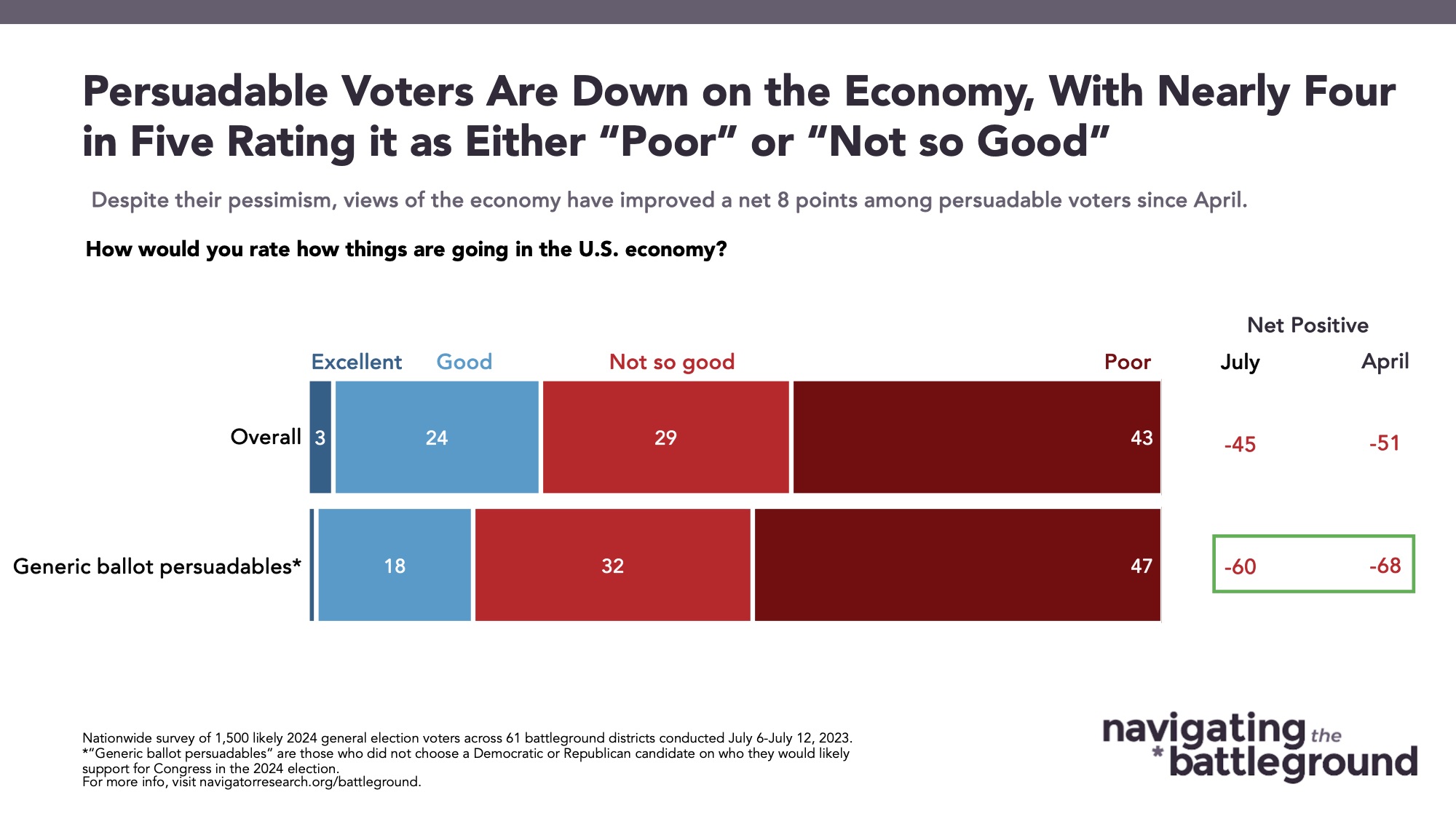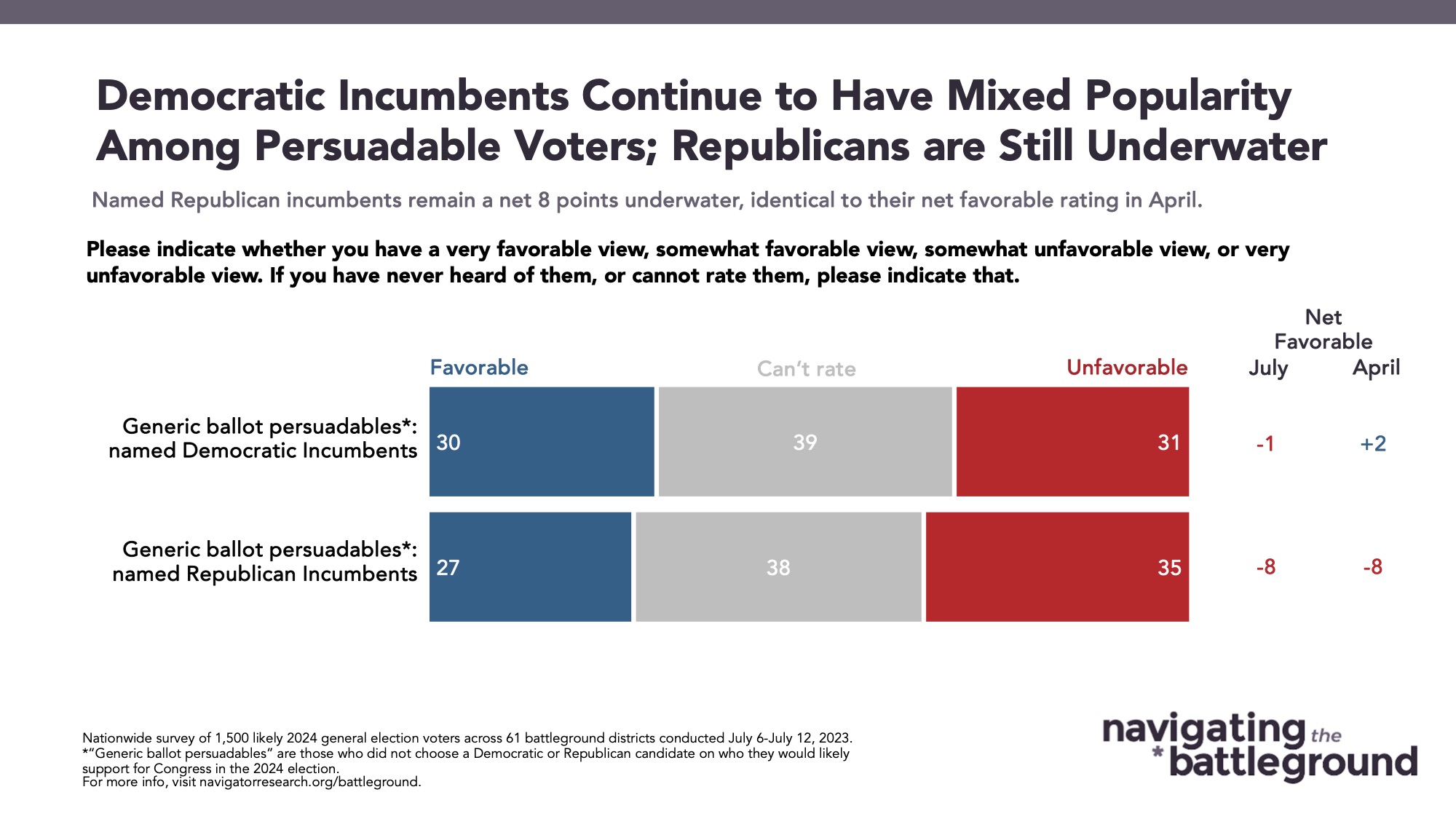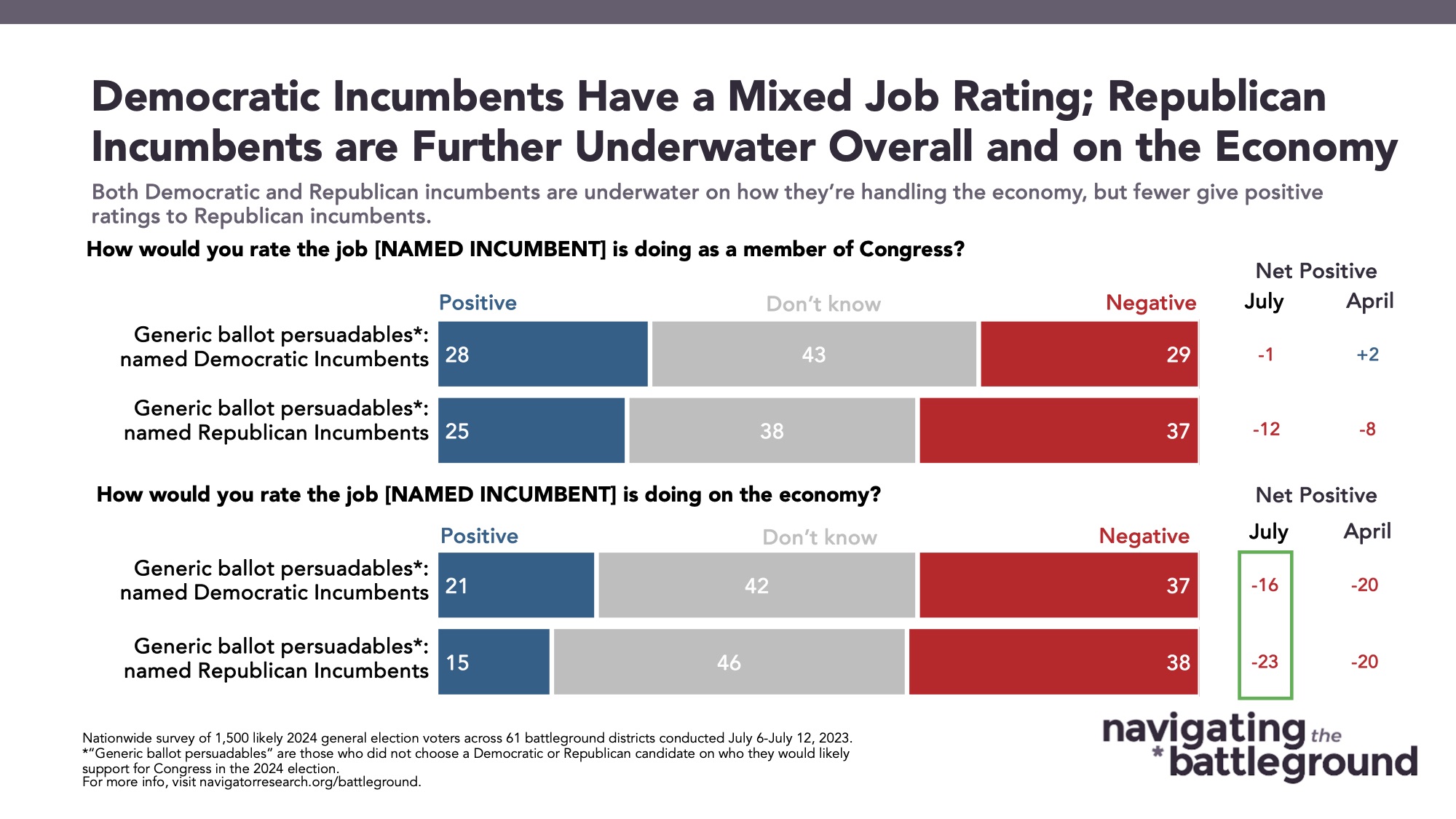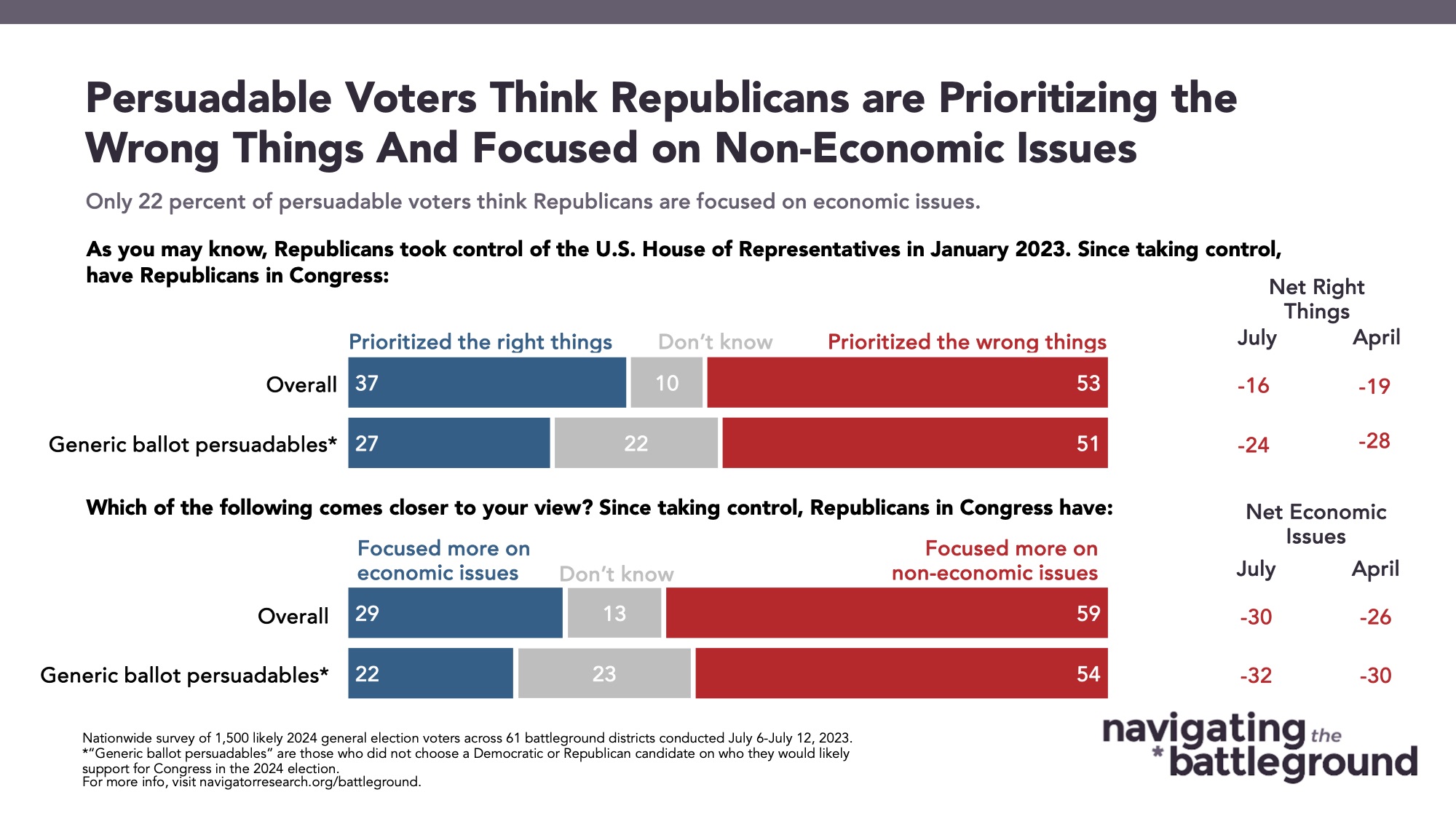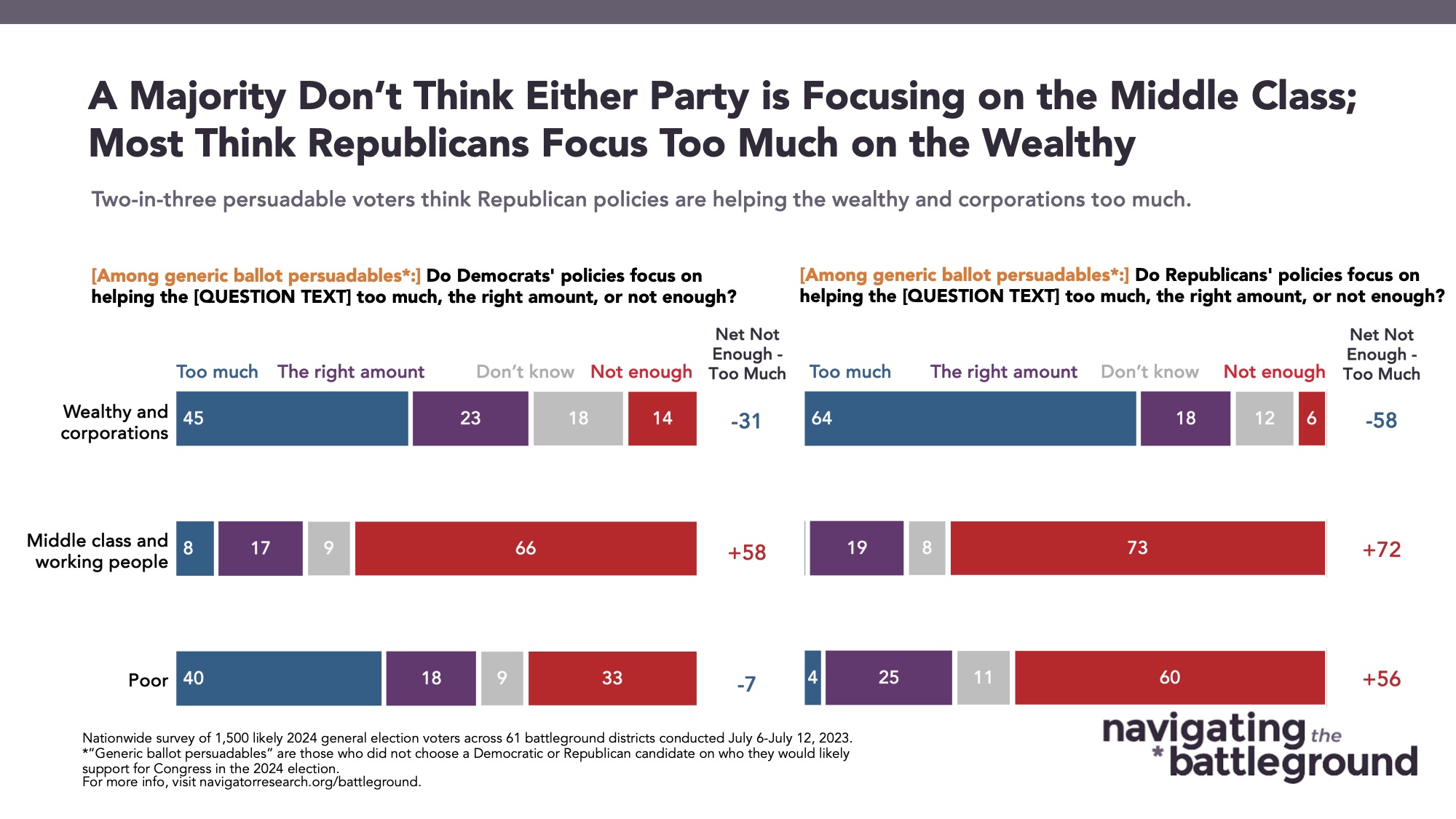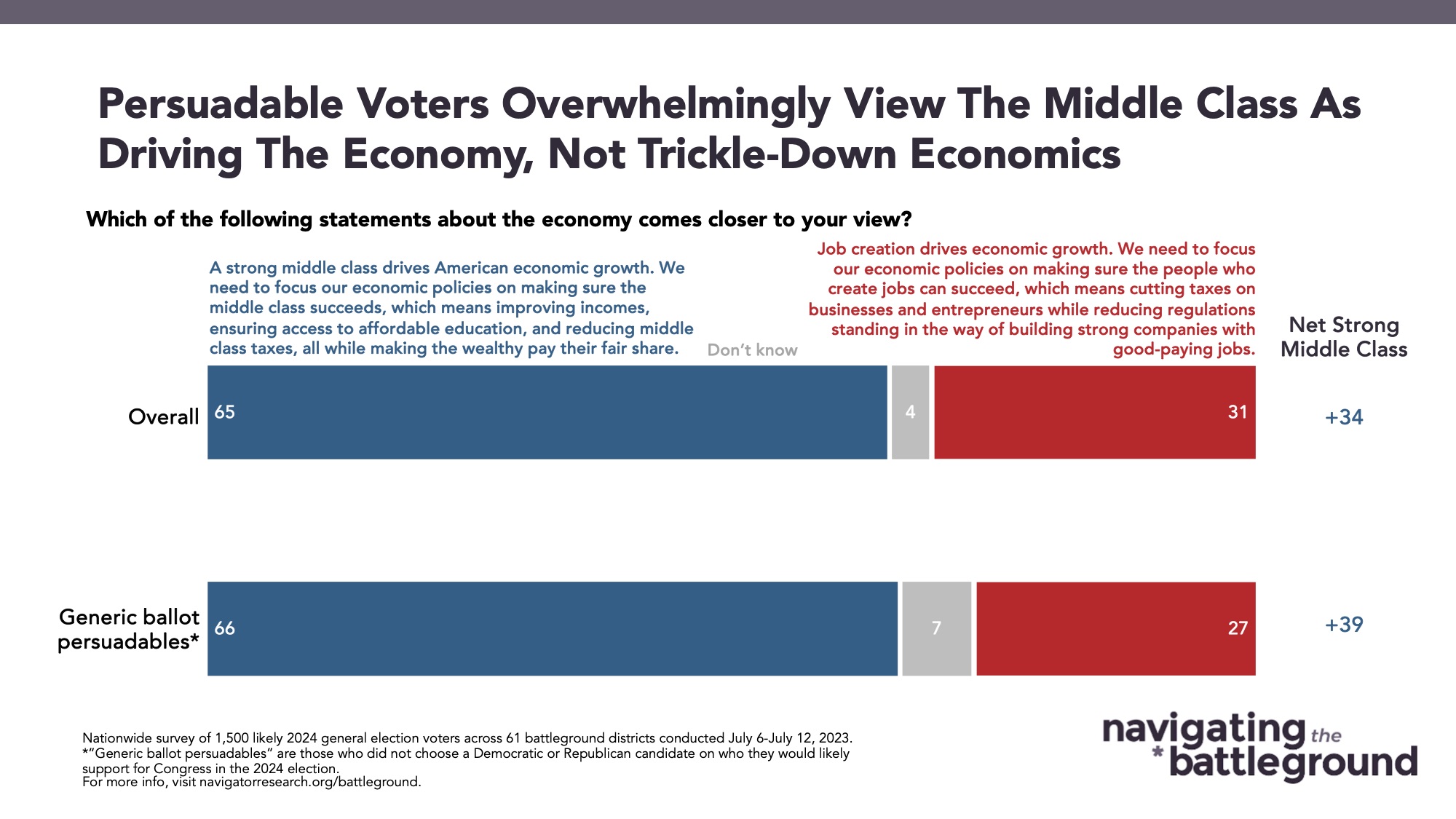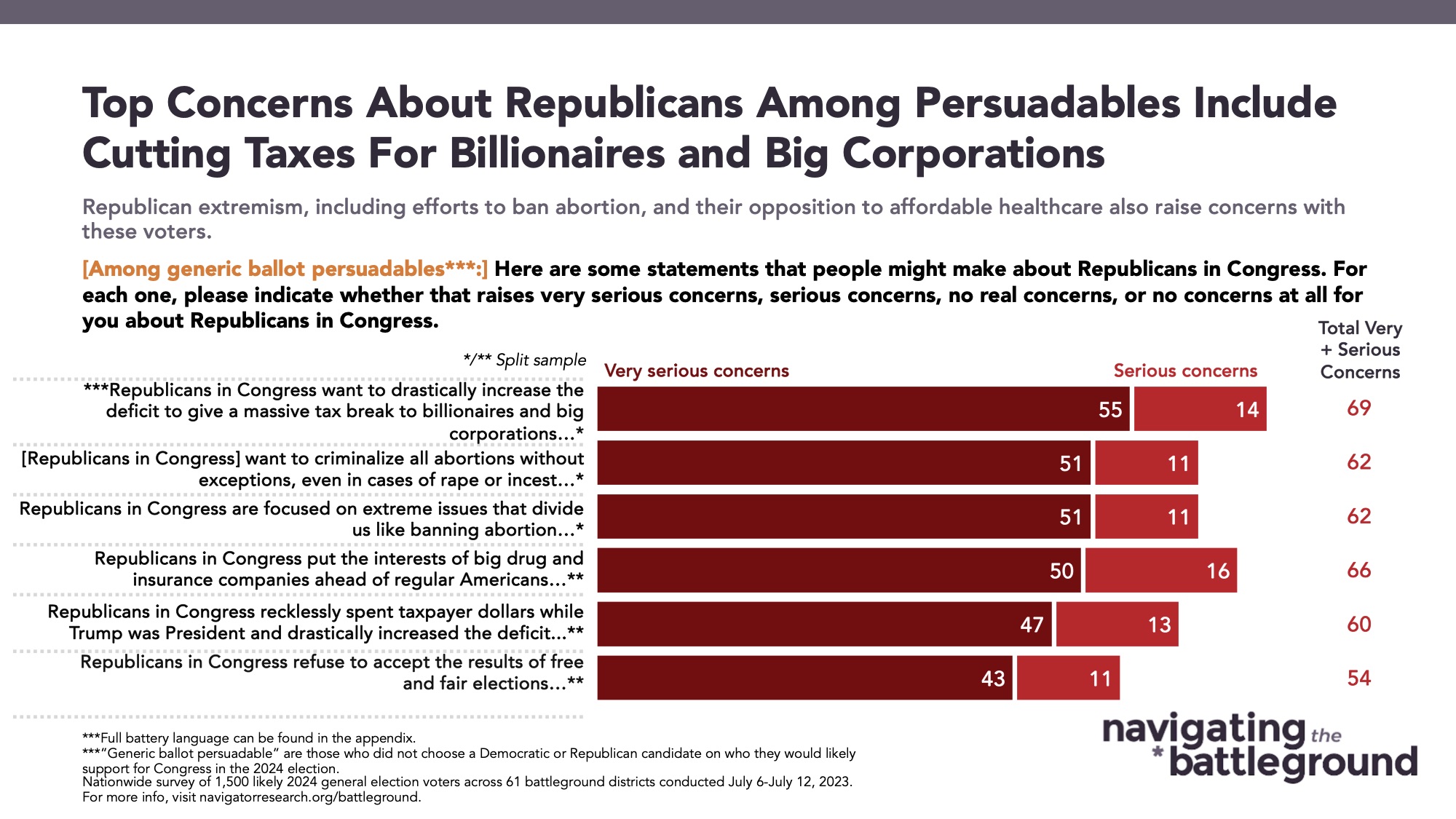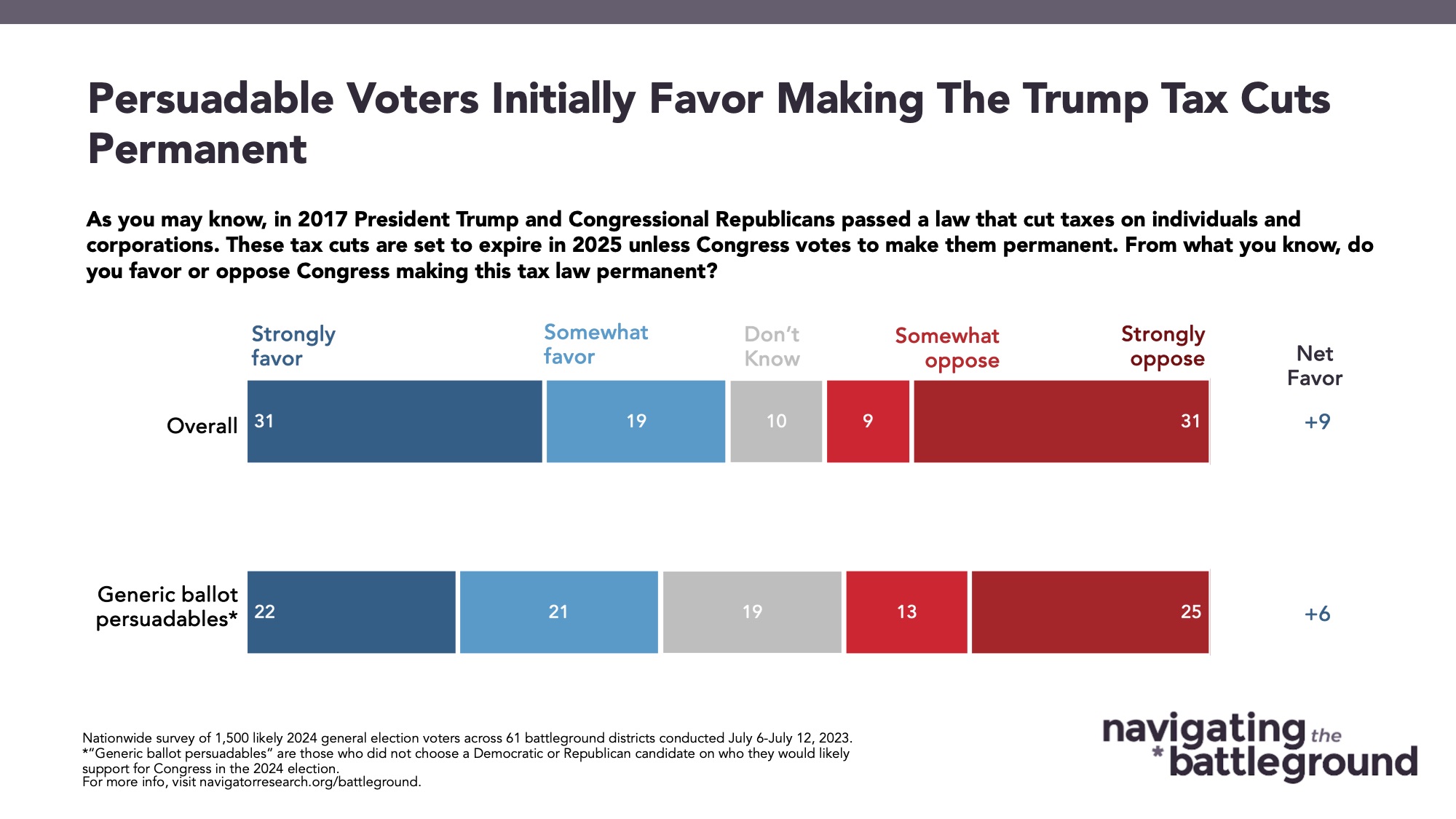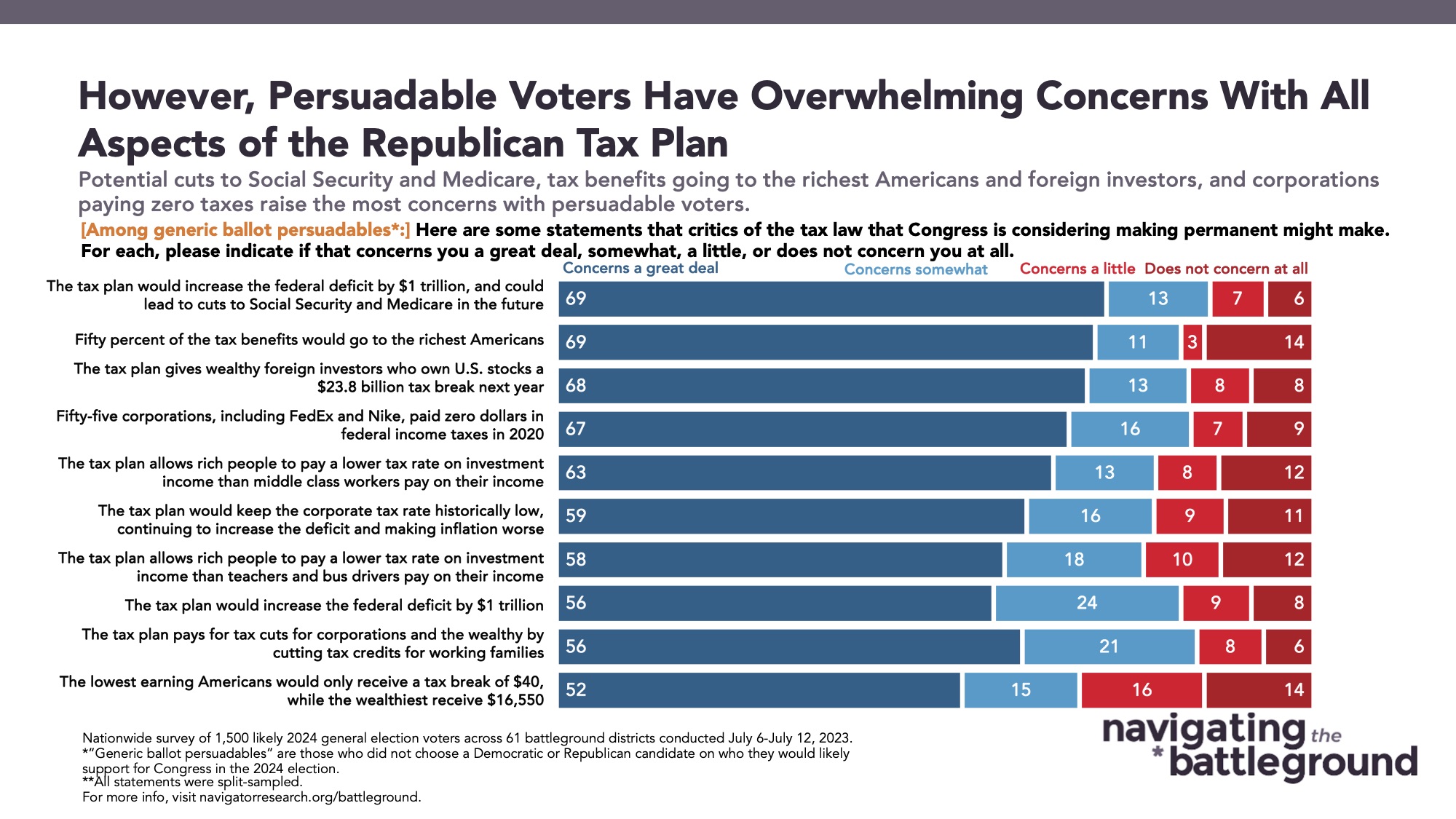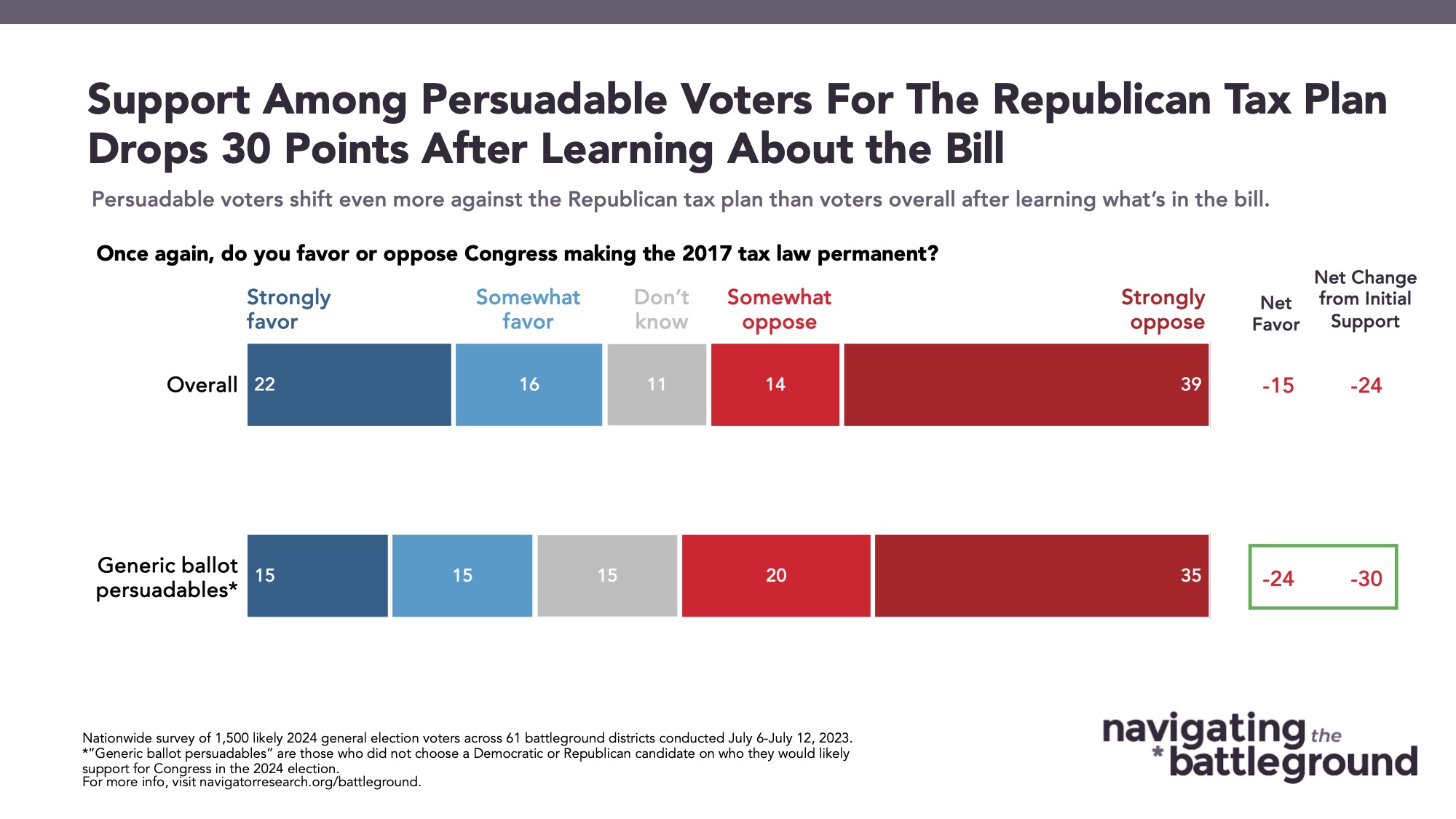Persuadable Voters in the Battleground
This Navigating the Battleground report contains polling data on the latest perceptions of “persuadable” battleground constituents — defined as those who did not choose a Democratic or Republican candidate on who they would likely support for Congress in the 2024 election — including their views on the economy and the political parties, as well as which policies they support when it comes to the economy.
Persuadable battleground constituents are more likely than the overall battleground electorate to give the economy a negative rating.
79 percent of battleground constituents give the U.S. economy a negative rating, with 47 percent describing it as “poor.” While persuadable constituents are significantly down on the economy, there has been a net 8-point improvement in net economic ratings compared to April, where persuadable constituents were a net -68 on the economy compared to net -60 now.
Persuadable constituents trend closely with the overall battleground when it comes to their ratings of their congressional representatives, giving Democratic incumbents more favorable job approval ratings than their Republican counterparts.
By an 8-point margin, persuadable constituents are unfavorable towards Republican incumbents in their districts (27 percent favorable – 35 percent unfavorable); there is an even split on perceptions of Democratic incumbents (net -1; 30 percent favorable – 31 percent unfavorable). Both Republican and Democratic incumbents have lower favorability ratings among persuadable constituents than the overall battleground: Democratic incumbents are net +4 across all battleground constituents (compared to net -1 among persuadable constituents) and Republican incumbents are net -2 across all battleground constituents (compared to net -8 among persuadable constituents).
- Persuadable constituents also split evenly on the job rating of Democratic incumbents (net -1; 28 percent positive – 29 percent negative), but fare far better than their Republican counterparts, who are a net 12 points underwater (25 percent positive – 37 percent negative). Incumbents from both parties fare worse on their handling of the economy: Democratic incumbents are a net 16 points underwater (21 percent positive – 37 percent negative), while Republican incumbents are even further net negative on their economic handling (net -23; 15 percent positive – 38 percent negative).
Persuadable constituents think Republicans have not prioritized the right things since taking control of the House of Representatives.
When asked if Republicans have had the right priorities since taking control of the House in January, a majority of persuadable constituents believe Republicans have prioritized the wrong things (net -24; 27 percent prioritized the right things – 51 percent prioritized the wrong things). These views are largely consistent with persuadable constituents’ belief in whether Republicans are focused on economic issues: by a 32-point margin, persuadable battleground constituents believe that Republicans are focused more on non-economic issues (22 percent focused on economic issues – 54 percent focused on non-economic issues).
- Two in three persuadable battleground constituents see Republicans’ policies as focused on helping the wealthy and corporations (64 percent), while 73 percent said they don’t focus enough on helping the middle class and 56 percent say they don’t focus on helping the poor enough.
By a more than two-to-one margin, persuadable constituents believe economic policies that ensure the middle class succeeds are preferred over a more trickle-down approach.
When asked if economic improvement stems more from policies centering the middle class or more from policies that center the people who create jobs, persuadable constituents overwhelmingly favor policies that focus on strengthening the middle class directly (66 percent) compared to just 27 percent who say the same about focusing on those who create jobs. In a separate battery evaluating a variety of concerns about Republicans in Congress, the top concern was: “Republicans in Congress want to drastically increase the deficit to give a massive tax break to billionaires and big corporations, and even cut earned benefits like Social Security and Medicare that the middle class relies on” (69 percent serious concerns, including 55 percent who have “very serious concerns”).
An increased deficit, potential cuts to programs, and unfair tax loopholes for corporations are among the top concerns about the Republican tax plan for battleground persuadable constituents.
In an initial ask, a plurality of persuadable constituents narrowly prefer making the 2017 Trump tax cuts permanent (net +6; 43 percent favor – 37 percent oppose). When showing potential outcomes of the tax plan, more than two in three persuadable constituents are “concerned a great deal” that it would “increase the deficit by $1 trillion and lead to Social Security and Medicare cuts” (69 percent), that “50 percent of the tax benefits in the plan would go to the richest Americans” (69 percent), and that “the tax plan gives wealthy foreign investors who own U.S. stocks a $23.8 billion tax break next year” (68 percent). After learning more about the consequences of making the Trump tax cuts permanent, net support drops by 30 points from net +6 to net -24 among persuadable constituents (30 percent favor – 54 percent oppose).
About The Study
Impact Research conducted public opinion surveys among a sample of 1,500 likely 2024 general election voters from July 6-12, 2023. The survey was conducted by a mix of text-to-web (74 percent) and an opt-in, online panel (26 percent). Respondents were verified against a voter file and special care was taken to ensure the demographic composition of our sample matched that of the 61 congressional districts included in the sample across a variety of demographic variables. The margin of error for the full sample at the 95 percent level of confidence is +/- 2.5 percentage points. The margin for error for subgroups varies and is higher.

